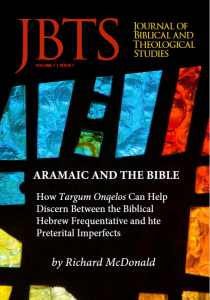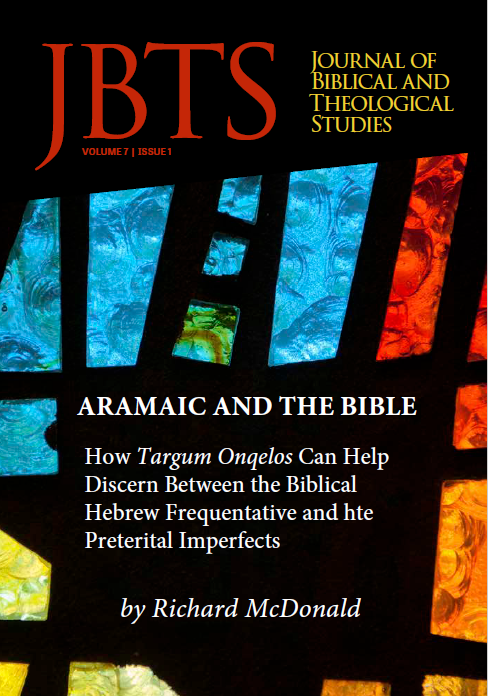Richard McDonald
Richard C. McDonald is an Instructor at Whitefield Academy and Adjunct Instructor of Old Testament Interpretation at Boyce College in Louisville, KY
Abstract: The biblical Hebrew past Imperfect can be a difficult verb form to translate. The Hebrew grammars available to the reader do not provide many tips to determine whether a particular BH past Imperfect is functioning as a frequentative or a preterital. In fact, one grammarian contends that it is often left up to the intellect of the reader. However, the reader has another tool—not simply his or her intellect—to utilize in order to understand the BH past Imperfect. This paper argues that Targum Onqelos of the Pentateuch serves as a reliable guide in discerning the function of the BH frequentative and preterital Imperfects in the books of Genesis through Deuteronomy. The Hebrew and the Aramaic texts of Numbers 9:15-23 and Exodus 15:1-18 are analyzed to demonstrate that Onqelos consistently renders the BH frequentative with a Participle, and the BH preterital Imperfect with a Perfect. The concepts gleaned from Numbers 9:15-23 and Exodus 15:1-18 are then applied to other passages in the Pentateuch confirming that the targumist is consistent in rendering the various functions of the BH Imperfect.
Key Words: Targum Onqelos, frequentative Imperfect, preterital Imperfect, vav-consecutive Perfect, Participle, Perfect
Read the full article: How Targum Onqelos Can Help Discern Between the Biblical Hebrew Frequentative and Preterital Imperfects





